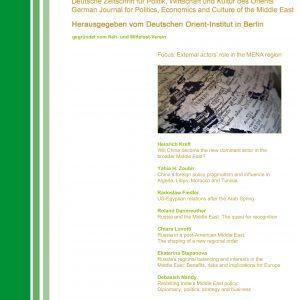Description
The main shift in Russia’s Middle East policy, upgraded since 2015, has been a move away from Western-centeredness towards more active engagement with, and balancing between, regional actors. The article explores the benefits, costs and risks associated with such regionalisation for Moscow, outlines key interests pursued by Russia in view of its new regional role and analyses its implications for Europe. It tries to explain why, despite the EU’s more balanced approach to the Middle East, the space for Russia-Europe cooperation in the region appears even more limited than that with the United States and identifies a few areas of confluence of interest and potential cooperation.
Ekaterina Stepanova is Lead Researcher and Head of Peace and Conflict Studies Unit, Primakov National Research Institute of World Economy and International Relations (IMEMO), Moscow. Her research focus is on armed conflicts, peace processes, peacebuilding, terrorism, radicalisation, human security and political economy of conflicts. Her several books include ISIS and the Phenomenon of Foreign Terrorist Fighters in Syria and Iraq (IMEMO, 2020) and Terrorism in Asymmetrical Conflict (Oxford University Press, 2008).




Reviews
There are no reviews yet.